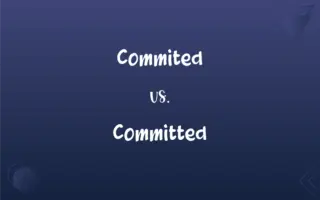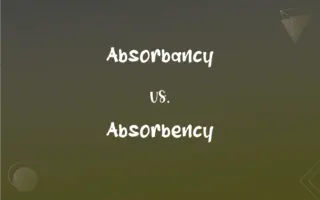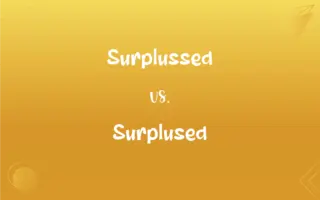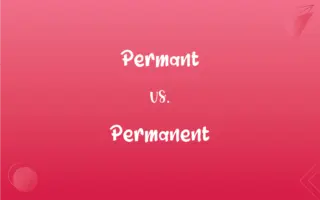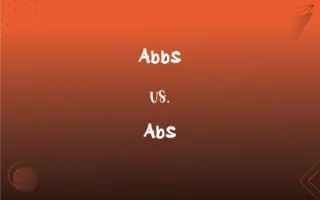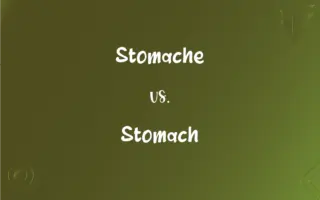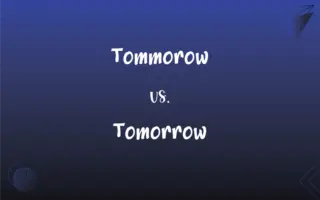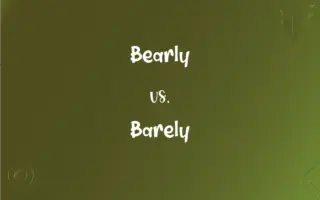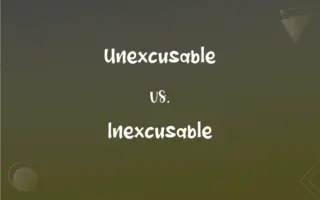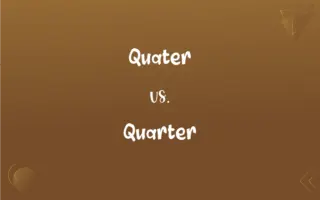Comming vs. Coming: Mastering the Correct Spelling
Edited by Harlon Moss || By Janet White || Updated on March 14, 2024
"Comming" is the incorrect spelling. The correct spelling is "Coming," referring to the act or instance of arriving.
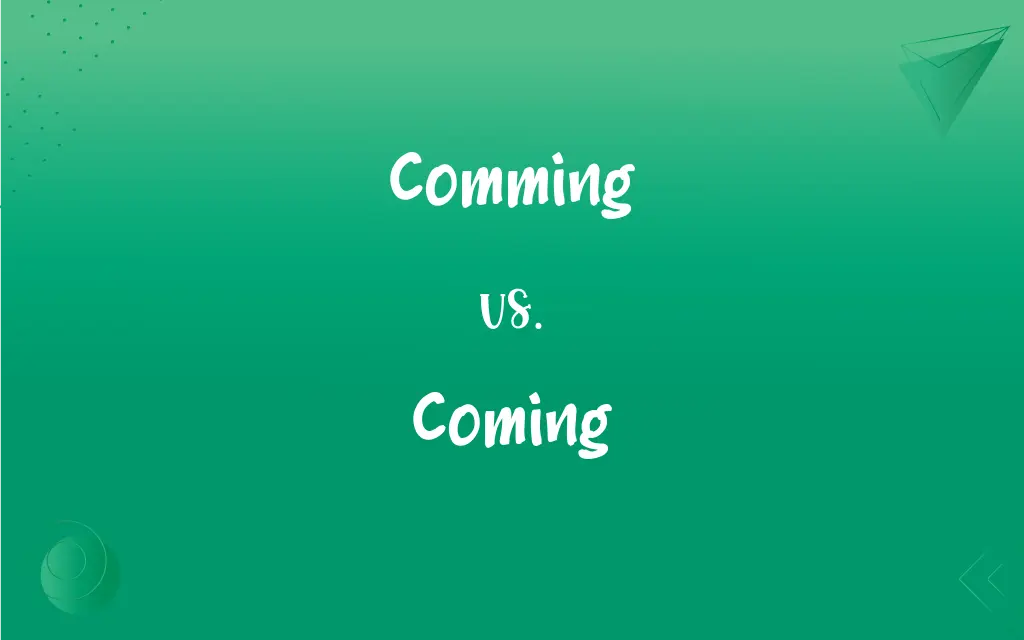
Which is correct: Comming or Coming
How to spell Coming?

Comming is Incorrect

Coming is Correct
ADVERTISEMENT
Key Differences
Think of the phrase "It's coming soon," which is frequently used and spelled with one "m."
Associate it with "come," the base form, which has only one "m."
Visualize the action of arriving or "coming" to a place.
Recall common phrases like "coming of age" or "coming to terms" to reinforce the correct spelling.
Remember that doubling consonants often follows a short vowel, but the "o" in "coming" is not short.
ADVERTISEMENT
Correct usage of Coming
He keeps comming to the same conclusion.
He keeps coming to the same conclusion.
The train is comming soon.
The train is coming soon.
Are you comming to the party?
Are you coming to the party?
She is comming over for dinner.
She is coming over for dinner.
The storm is comming this evening.
The storm is coming this evening.
Coming Definitions
Future or impending.
In the coming days, we'll see a change.
Emerging into prominence or notice.
She's a coming star in Hollywood.
Approaching or about to take place.
The coming event will be spectacular.
Approaching; forthcoming; next
The coming season.
A coming report on arms limitation.
Showing promise of fame or success.
Arrival; advent
The coming of spring.
Present participle of come
The act of arriving; an arrival.
Approaching; of the future, especially the near future; the next.
See you the/this Sunday coming! -Well, maybe I can't the/this coming Sunday but on Sunday week.
She will have two or three paintings in the coming exhibition.
Newly in fashion; advancing into maturity or achievement.
Ergonomic wallets are the coming thing.
(obsolete) Ready to come; complaisant; fond.
Approaching; of the future, especially the near future; the next; as, the coming week or year; the coming exhibition.
Welcome the coming, speed the parting, guest.
Your coming days and years.
Ready to come; complaisant; fond.
Approach; advent; manifestation; as, the coming of the train.
Specifically: The Second Advent of Christ, called usually the second coming.
The act of drawing spatially closer to something;
The hunter's approach scattered the geese
Arrival that has been awaited (especially of something momentous);
The advent of the computer
The temporal property of becoming nearer in time;
The approach of winter
The moment of most intense pleasure in sexual intercourse
Of the relatively near future;
The approaching election
This coming Thursday
The forthcoming holidays
The upcoming spring fashions
Yet to come;
Coming generations
A future-day Gibbon of Macaulay
The act of arriving.
The coming of guests was unexpected.
Moving or advancing toward a particular place.
He saw his friend coming from a distance.
Coming Sentences
She's coming home after years abroad.
Winter is coming, and it's going to be cold.
The flowers are coming into bloom.
Are they coming to the meeting tomorrow?
He's coming along with us to the concert.
The new movie is coming out next month.
The sun is coming up over the horizon.
The baby's first tooth is coming in.
The changes to the law are coming soon.
The deadline is coming up quickly.
The technology is coming along nicely.
He's coming down with a cold.
The release date is coming closer.
The repairman is coming tomorrow morning.
She's coming out of her shell more and more.
Help is coming for those affected by the storm.
The end of the semester is coming fast.
The realization is slowly coming to me.
The team is coming together for practice.
She's coming back from her trip on Monday.
The holidays are coming, and everyone is excited.
I feel like good times are coming.
They're coming after us with full force.
Spring is coming, and I can't wait for warmer weather.
Coming Idioms & Phrases
Coming to light
Becoming known or apparent.
New evidence is coming to light in the case.
Coming into one's own
To reach a level of success or to become confident in what one does.
After years of hard work, she's really coming into her own as an artist.
Coming full circle
Returning to the original position or state of affairs after a series of events.
After traveling the world, he's coming full circle to his hometown to start his business.
Coming to terms with
Beginning to accept and deal with a difficult or unpleasant situation.
She's coming to terms with the fact that she needs to change careers.
Coming into play
Starting to have a role or effect in a situation.
Several factors are coming into play in the decision-making process.
Coming undone
Beginning to fail or collapse.
His plans started coming undone when he lost his main investor.
Coming to a head
Reaching a critical or pivotal point.
The conflict is coming to a head and must be resolved soon.
Coming out of the woodwork
Appearing from out of nowhere in large numbers, especially to express support or to criticize.
Fans are coming out of the woodwork now that the team is winning.
Coming into view
Becoming visible or apparent.
As we climbed the hill, the city came into view.
Coming of age
The transition from childhood to adulthood.
The novel is about the protagonist's coming of age.
Coming down the pike
Approaching; in the process of coming.
There are some major changes coming down the pike for our department.
Coming up short
Failing to meet a standard or expectation.
Despite their efforts, they came up short of their sales goals.
FAQs
What is the root word of Coming?
The root word is "come."
What is the verb form of Coming?
The verb form is "come."
What is the pronunciation of Coming?
It is pronounced as /ˈkʌm.ɪŋ/.
Which conjunction is used with Coming?
Any conjunction can be used, depending on the sentence.
Why is it called Coming?
It's called "coming" as it denotes the action of approach or arrival, derived from the verb "come."
Which vowel is used before Coming?
Typically, the article "a" or "the" can precede "coming."
Which preposition is used with Coming?
Prepositions like "in," "of," "during," and "on" can be used with "coming," depending on context.
What is the plural form of Coming?
It remains "coming," but the word it modifies will determine its plurality.
Which article is used with Coming?
Both "a" and "the" can be used before "coming."
Is Coming an abstract noun?
In some contexts, yes, as in "the coming of age."
Is Coming a negative or positive word?
Neutral; it simply indicates approach or arrival.
Is Coming a vowel or consonant?
"Coming" is a word containing both vowels and consonants.
What is the first form of Coming?
The first form is "come."
What is the singular form of Coming?
"Coming" is both singular and plural in its form.
Is Coming a noun or adjective?
"Coming" can be both a noun (as in "the coming of winter") and an adjective (as in "the coming attractions").
Is the Coming term a metaphor?
It can be, depending on context, as in "the coming of a new era."
Is the word Coming imperative?
No, "coming" is not imperative.
How do we divide Coming into syllables?
Com-ing.
What is a stressed syllable in Coming?
The first syllable "Com-" is stressed.
What is the opposite of Coming?
The opposite could be "going" or "departing."
Which determiner is used with Coming?
Determiners like "the," "this," or "next" can be used with "coming."
Is Coming an adverb?
No, "coming" is not an adverb.
Is Coming a collective noun?
No, it's not.
What part of speech is Coming?
"Coming" can be a noun, an adjective, or a present participle.
What is the third form of Coming?
The third form is "come."
How many syllables are in Coming?
There are two syllables in "coming."
What is another term for Coming?
Another term could be "approaching" or "arriving."
What is the second form of Coming?
The second form is "came."
Is Coming a countable noun?
When used as a noun, "coming" is typically uncountable.
How is Coming used in a sentence?
"She is coming to the party later tonight."
About Author
Written by
Janet WhiteJanet White has been an esteemed writer and blogger for Difference Wiki. Holding a Master's degree in Science and Medical Journalism from the prestigious Boston University, she has consistently demonstrated her expertise and passion for her field. When she's not immersed in her work, Janet relishes her time exercising, delving into a good book, and cherishing moments with friends and family.
Edited by
Harlon MossHarlon is a seasoned quality moderator and accomplished content writer for Difference Wiki. An alumnus of the prestigious University of California, he earned his degree in Computer Science. Leveraging his academic background, Harlon brings a meticulous and informed perspective to his work, ensuring content accuracy and excellence.
